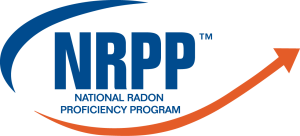
Optimize Your HUD Multifamily Property
Choose Cardinalbama for precise and effective radon mitigation and monitoring in HUD multifamily properties. Our professional services guarantee adherence to all federal requirements, prioritizing resident health and safety.
Ensure your HUD multifamily property meets strict radon requirements with our expertise:
- Certified radon testing by NRPP and NRSB professionals
- Comprehensive mitigation strategies
- Compliance with ANSI/AARST and ASTM standards
- Custom mitigation designs for each property
- Post-installation testing for assurance
- Complete HUD documentation and support
Comprehensive HUD Multifamily Services
With our tailored solutions, property managers receive a seamless implementation of radon mitigation strategies, all while maintaining the housing quality and compliance required under HUD regulations.
- Detailed evaluation and risk assessment
- Customized mitigation strategies for compliance
- Cutting-edge technology for radon reduction
- System Integration with minimal disruption
- Comprehensive maintenance and monitoring services
- Ensured compliance with HUD safety standards
- Transparent communication of processes and outcomes

Who We Serve
We provide dedicated radon solutions for a variety of clients across the residential sector, ensuring safety and peace of mind.
Homeowners
Ensure the safety of your family with our expert radon testing and mitigation services, tailored specifically for your home.
Real Estate Agents
Partner with us to offer your clients reliable radon assessments, enhancing property value and ensuring safety compliance.
homebuyers & sELLERS
Partnering with buyers and sellers, we provide radon solutions for easier transactions.
Essential FAQs About Radon in HUD Multifamily
Here are our most frequently asked questions, but feel free to reach out if you have any other questions.
Our Proven Success in Radon Mitigation
At Cardinalbama, we pride ourselves on providing top-notch radon mitigation services that consistently meet client expectations and regulatory requirements.
Success Rate
We achieve perfection with a 100% success rate, guaranteeing effective radon mitigation and ensuring safety for all properties.
Reduced Levels
Our guaranteed radon levels are always under the safety threshold of 4.0 pCi/L, protecting your health effectively.
years of expertise
We have expertly completed over 30 years of projects with retrofitting, optimizing safety and efficiency for complex scenarios.
Our Certifications
Cardinalbama is proudly certified by the industry’s leading organizations, reflecting our commitment to quality, safety, and professionalism. Our credentials ensure that we meet the highest standards for radon mitigation and testing services.





"*" indicates required fields
Ensure Safety with Our Radon Mitigation Expertise
Our team at Cardinalbama is committed to delivering top-tier radon mitigation services to ensure your property’s safety and compliance. Our experts use state-of-the-art technology and rigorous standards to effectively reduce radon levels.


